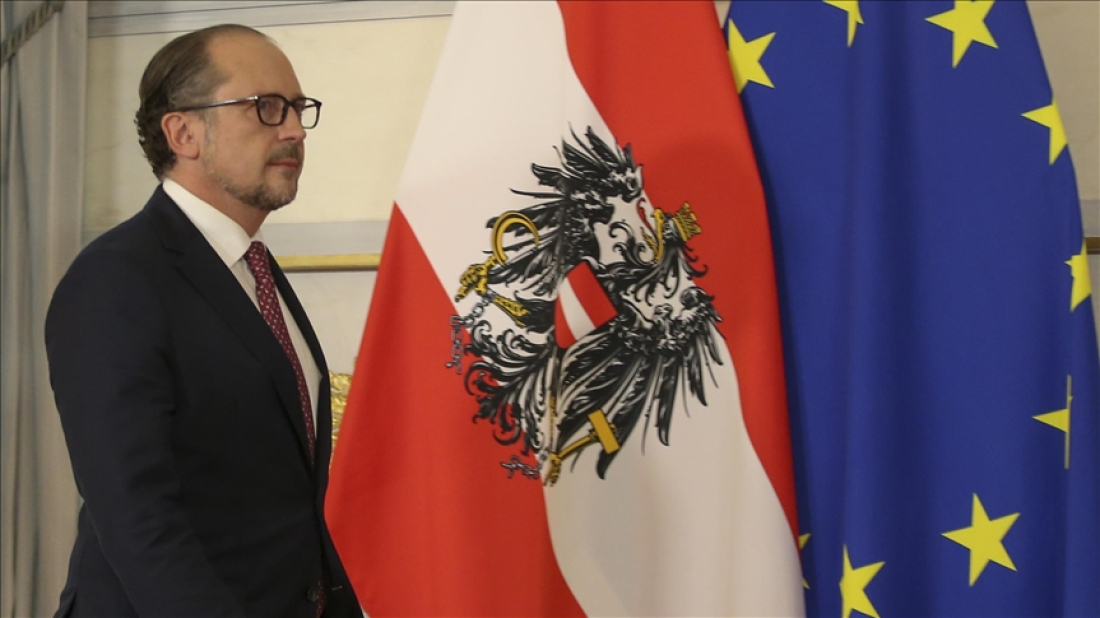AnewZ Morning Brief - 24 February, 2026
Start your day informed with AnewZ Morning Brief. Here are the top news stories for the 24th of February, covering the latest developments you need to...

Alexander Schallenberg will serve as Austria's interim leader after Chancellor Karl Nehammer's resignation, as the far-right Freedom Party begins efforts to form a coalition government.
Austrian Foreign Minister Alexander Schallenberg will serve as the country’s interim leader while the far-right Freedom Party attempts to put together a new coalition government, the president’s office said Wednesday.
Schallenberg, 55, will take on the duties of outgoing Chancellor Karl Nehammer, who announced his resignation over the weekend after his efforts to put together a coalition without the Freedom Party collapsed. Nehammer plans to step down on Friday.
President Alexander Van der Bellen’s office said in a statement that the head of state will formally task Schallenberg with “continuing the management of the chancellery and leading the interim government.”
It will be Schallenberg’s second — and, again, likely brief — stint as Austria’s leader. Schallenberg served as chancellor for less than two months in late 2021 after Sebastian Kurz resigned, before passing the job to Nehammer and returning to the Foreign Ministry.
The anti-immigration, euroskeptic and Russia-friendly Freedom Party won Austria’s parliamentary election in September, but was initially shunned by other parties.
After Nehammer announced his resignation, his conservative Austrian People’s Party made an abrupt U-turn on its previous refusal to contemplate working with the Freedom Party under its leader, Herbert Kickl.
On Monday, Kickl received a mandate to try to form what would be the first national government led by the far right since World War II. That’s a process that could take weeks or months, and isn’t guaranteed to succeed.
Schallenberg has said he wouldn’t stay in the government under Kickl.
Italy said a fond farewell to the Winter Olympics on Sunday with an open-air ceremony in the ancient Verona Arena that celebrated art and sporting achievement at a Games lauded as a model for how to stage such events.
The United States and Iran will hold a new round of nuclear negotiations in Geneva on Thursday as part of renewed diplomatic efforts to reach a potential agreement, Oman’s Foreign Minister Badr Albusaidi announced on Sunday.
Further Iran-U.S. nuclear talks are scheduled in Geneva on Thursday (26 February) as diplomacy resumes over Tehran’s nuclear programme following earlier mediation efforts. But will the talks move Iran-U.S. negotiations closer to a deal, and what should be expected from the meeting?
Mexican authorities said on Sunday that Nemesio Oseguera Cervantes, known as El Mencho and head of the Jalisco New Generation Cartel (CJNG), was killed during a military operation in the western state of Jalisco.
The European Parliament’s trade chief has urged a temporary suspension of the EU–U.S. trade agreement approval, citing “tariff chaos” following President Donald Trump’s new 15% tariffs and a U.S. Supreme Court ruling invalidating his previous global tariff programme.
Start your day informed with AnewZ Morning Brief. Here are the top news stories for the 24th of February, covering the latest developments you need to know.
Global transportation company FedEx has filed a lawsuit in the U.S. Court of International Trade seeking a refund for President Donald Trump's emergency tariffs it paid under the overturned International Emergency Economic Powers Act (IEEPA).
Four years after Russia launched its full-scale invasion of Ukraine on 24 February 2022, the war is no longer defined by shock but by scale.
The son of Hollywood filmmaker Rob Reiner, pleaded not guilty on Monday (23 February) to murdering his parents at their Los Angeles home in December. Nick Reiner, 32, entered not guilty pleas to two counts of first-degree murder during an arraignment at Los Angeles County Superior Court.
Thousands of people gathered across Europe and beyond over the weekend in solidarity with Ukraine, as the war with Russia entered its fifth year.
You can download the AnewZ application from Play Store and the App Store.

What is your opinion on this topic?
Leave the first comment